Are you bored of baking, tired of television and sick of socially distanced zoom parties? Before resorting to a rule-flouting jolly around Durham, take a look at Lockdown Library: the books that have kept Gemma Pearson going through the third month of lockdown.
Two months have now passed since the first edition of the Wales Arts Review’s Lockdown Library, and what a month it has been. In the last four weeks, the cultural chasms that cut through the countries of the (dis)United Kingdom have become impossible to ignore. While Boris Johnson marches onward, easing England’s lockdown restrictions with maddening arrogance and misplaced stoicism, the First Ministers of Wales and Scotland have been more meditative in their approach. Anyone could be forgiven for thinking that in England at least, social distancing is a thing of the past – a passing trend that has fallen out of fashion in the wake of May’s glorious weather. For many throughout the rest of the U.K, however, nothing has changed. So for those still searching for something to ease the boredom and anxiety of imposed isolation, here are the books I’ve been reading this month. You might just find a new favourite.
Everything I Know About Love, Dolly Alderton (2018)
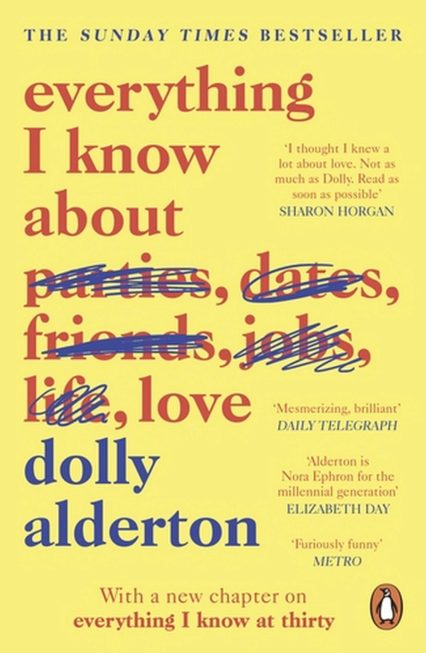 For the first submission to Lockdown Library, in what Eva Wiseman has called a perfect “millennial memoir,” journalist and writer Dolly Alderton smoothly articulates the struggles of early adulthood with a charming balance of self-deprecation and optimism. In Everything I Know About Love, Alderton navigates the travails of her twenties through a series of open-hearted first-person accounts, recipes, checklists, and parodies of e-mails we all dread (think pushy hen-do organisers and embarrassing couples’ updates).
For the first submission to Lockdown Library, in what Eva Wiseman has called a perfect “millennial memoir,” journalist and writer Dolly Alderton smoothly articulates the struggles of early adulthood with a charming balance of self-deprecation and optimism. In Everything I Know About Love, Alderton navigates the travails of her twenties through a series of open-hearted first-person accounts, recipes, checklists, and parodies of e-mails we all dread (think pushy hen-do organisers and embarrassing couples’ updates).
Alderton utilises an accessible, conversational style while dissecting an assortment of topics with generous honesty: finding a job, dealing with breakups, escaping disastrous dates, forging a freelance career, unsuccessful Rod-Stewart-themed parties, dodgy flat shares, and messy nights out to name but a few. As a result, Alderton’s memoir reads like a boozy late-night confessional with a lifelong friend. Her accounts of conversations uttered in her therapist’s office feel particularly intimate, and the delicious, recurring snippets of riotous nights and dubious, alcohol-induced decisions are both cautionary and hilarious. With each and every fragment, Alderton’s lively debut is sure to resonate with anyone who’s ever been young, reckless, and hopelessly in love.
The Vegetarian, Han Kang (2015)
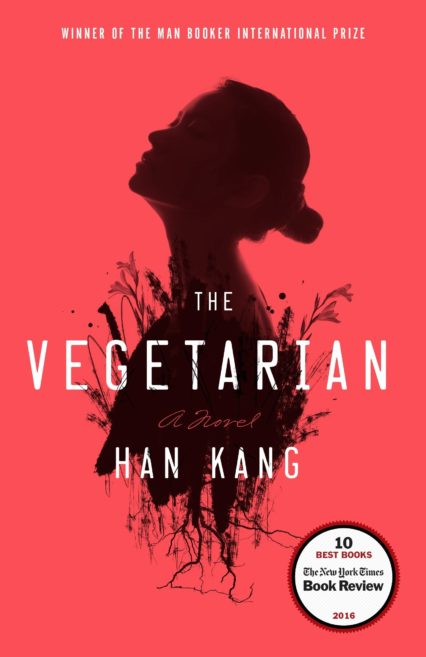 For the second submission to Lockdown Library, in this unsettling, fable-like novel about the shifting strata of desire, brutality, rebellion, and rage, South Korean writer Han Kang examines the crushing pressures of social conformity and the manifestation of violence against women in patriarchal systems.
For the second submission to Lockdown Library, in this unsettling, fable-like novel about the shifting strata of desire, brutality, rebellion, and rage, South Korean writer Han Kang examines the crushing pressures of social conformity and the manifestation of violence against women in patriarchal systems.
After a gruesome and disturbing dream, housewife Yeong-hye commits an act of cultural subversion that shocks and dismays her husband and family: she becomes a vegetarian. Soon she refuses food altogether, spiralling into unhealthy and self-destructive patterns and quickly becoming dangerously malnourished. But this extraordinary woman does not want to die – “Why, is it such a bad thing to die?” she muses from her hospital bed. Yeong-hye simply wants to live a different kind of life because, crucially, her rebellion pivots on the fantasy of abandoning her fleshly, human form to live a vegetal existence: “I’m not an animal anymore, sister, […] I don’t need to eat, not now. I can live without it. All I need is sunlight.”
The Vegetarian is sensual, erotic, and taboo, and Kang expertly strikes a disquieting balance between spellbinding beauty and shocking grotesquery. Macabre scenes of abuse and institutionalisation infuse Kang’s novel with darkness; Yeong-hye is subjected to rape, beatings, and forced feedings by those unable and unwilling to cognise the nuances of her psychology. Yet, elegantly translated from Korean to English by Deborah Smith, Anglophone readers will revel in Kang’s crisp, matter-of-fact prose, her compelling meditations on life, death, and sex, and the beautiful potency of Yeong-hye’s feminist metamorphosis.
Everything I Never Told You, Celeste Ng (2014)
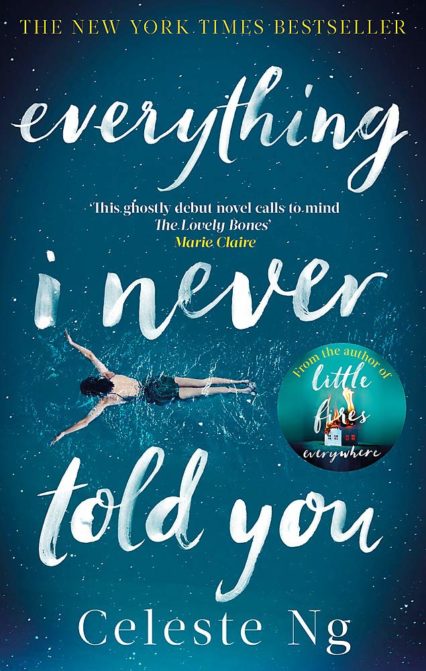 The third submission to Lockdown Library, set in 1970s small-town Ohio, this gripping debut novel from Celeste Ng, the author of Little Fires Everywhere, explores lies, longing, race, and the destructive potential of overbearing parental love.
The third submission to Lockdown Library, set in 1970s small-town Ohio, this gripping debut novel from Celeste Ng, the author of Little Fires Everywhere, explores lies, longing, race, and the destructive potential of overbearing parental love.
Having encountered racial discrimination ever since his immigration from China as a child, James Lee wants nothing more than for his children to fit in. For his wife Marilyn, a white housewife whose career as a doctor never quite materialised, their daughter Lydia represents everything she could have been. Blue-eyed and exceedingly bright, Lydia Lee is the family’s golden child. Carried from birth to adolescence on the mighty wave of her parents’ hopes and dreams and buoyed by their confidence in her future successes, she is the cord that binds the Lee family together. But when Lydia is found mysteriously drowned in the local lake, the Lee family’s precarious hold on domestic stability comes crashing down. Exploring those small, unspoken nuances that shape familial relationships, Everything I Never Told You is a wistful, profound, and sensitive portrait of an unhappy family struggling to find their place in an overtly racist society.
The Humans, Matt Haig (2013)
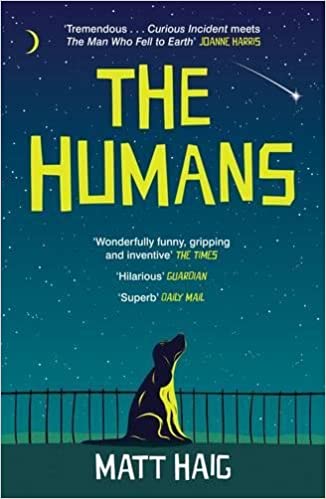 The final submission to Lockdown Library, told from the perspective of an alien sent to destroy evidence of Professor Andrew Martin’s momentous mathematical breakthrough, The Humans is an original, funny, wise, and heart-warming novel that puts our species under the microscope.
The final submission to Lockdown Library, told from the perspective of an alien sent to destroy evidence of Professor Andrew Martin’s momentous mathematical breakthrough, The Humans is an original, funny, wise, and heart-warming novel that puts our species under the microscope.
Despite its simple and somewhat predictable plot, The Humans has an impressive capacity to invoke self-reflection. While the alien imposter that steals Professor Andrew Martin’s body tries – and often fails – to properly adapt to life on planet Earth, its clever remarks about human concepts such as marriage, sex, family, mortality, and free will are wonderfully comedic and unexpectedly, existentially sad:
A human life is on average 80 Earth years or around 30,000 Earth days. Which means they are born, they make some friends, eat a few meals, they get married, or they don’t get married, have a child or two, or not, drink a few thousand glasses of wine, have sexual intercourse a few times, discover a lump somewhere, feel a bit of regret, wonder where all the time went, know they should have done it differently, realise they would have done it the same, and then they die. Into the great black nothing. Out of space. Out of time. The most trivial of trivial zeroes. And that’s it, the full caboodle. All confined to the same mediocre planet.
Are we humans a thoughtless, destructive, violent race of beings concerned only with technology and individualism? – Maybe. But is there more to us than that? – Definitely.
Examining the minutiae of human behaviour and satirising our earthly eccentricities with undeniable wit, Haig’s talent for self-analysis and observation reminds us that, even in the most uncertain times, the simple life we lead on this planet is beautiful, meaningful and, above all, miraculous: “You shouldn’t have been born. Your existence is as close to impossible as can be. To dismiss the impossible is to dismiss yourself.”
You might also like…
Welsh charity Safer Wales is marking this year’s International Women’s Day and Women’s History Month with the launch of a new feminist library.
Gemma Pearson is a regular contributor to Wales Arts Review.


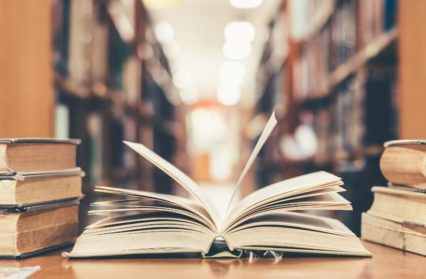
 Enjoyed this article? Support our writers directly by buying them a coffee and clicking this link.
Enjoyed this article? Support our writers directly by buying them a coffee and clicking this link.







